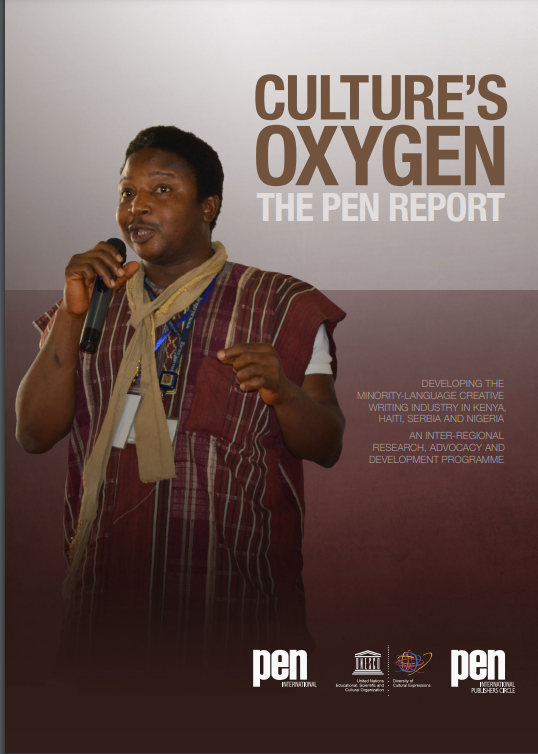Culture's Oxygen
21 February 2017 – To mark International Mother Language Day, PEN International has launched a new report which examines the condition for minority language creative writing industries in Kenya, Haiti, Serbia and Nigeria.
The report – Culture’s Oxygen - The PEN Report– finds that there is still a conviction in the mainstream publishing industry that it is primarily viable to sell books in dominant languages, and that a major obstacle to establishing and sustaining strong minority-language publishing industries is the way that minority languages are valued locally and nationally. It outlines global trends in minority-language literatures, explores the minority-language situation, and analyses the legal and policy framework and the prevailing book markets trends in the four focus countries. Finally, it outlines long-term objectives for the future of minority-language publishing and makes a series of recommendations to governments, as well as to cultural actors, publishers and writers.
The author of the report Simona Škrabec said: ‘In post-colonial Africa and the Caribbean, the publishing industry ignores the huge potential of minority language publishing to open up new markets that have never been explored. To reverse such deep-rooted convictions, one must start from the premise that markets can be changed, and that consumer patterns and behaviour can be altered. In order for the market in minority languages to be viable, even possible, we must remove the barriers that exclude wide swathes of the population from education in their local language. and prevent their normalised use in daily life.’
Creativity and language have the power to transform societies. Questions about the role of minority languages in processes for change must be linked to encouraging respect for difference, fostering empathy and promoting mutual understanding.
Writing the preface of the report, the Kenyan writer and academic Ngũgĩ wa Thiong’o states:
‘I believe in the Universal Declaration of Linguistic Rights, Barcelona, 1996 which recognises that the right to a mother tongue or the language of one’s culture is not a privilege to be granted or withdrawn at will, it’s a human right …This report, in its analyses and recommendations, is within that spirit, and should be read by writers, policy makers, translators and publishers and financial institutions with a stake in equitable global development.’

